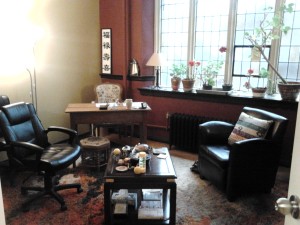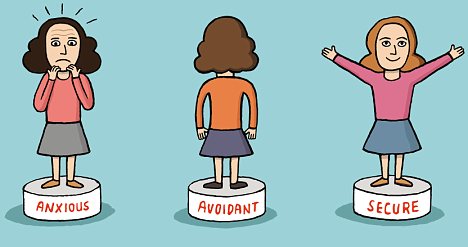For those seeking a counsellor or psychotherapist for the first time this talking-to-a-stranger-to-feel-better business can be daunting.
In some social circles using a counsellor can be a very uncommon activity, likely still quite shunned and stigmatized. If this sounds familiar, you might wonder “am I so messed up that I need this? To talk to a stranger? Yikes… things must be bad. What would my friends say if they found out?”
Or maybe you’re okay with the idea but not quite sure what to expect: the images you’ve seen in movies or sitcoms dominate… “will she act like that?” Or you’re expecting to lie on a sofa and speak while the therapist just adds a few “uh huh’s” for an hour. Hmm. Not so inspiring.
These concerns are pretty common for those new to psychotherapy. Unless you’ve had friends who’ve seen counsellors or psychotherapists and who are willing to talk about it, it makes sense that it’s an unknown. Even then, experiences of different counsellors can be very different.
If you are concerned prior to starting counselling, know that many many people these days seek out counselling, and that it can make a big difference. In most circles it has lost the stigma it once had.
One client recently was afraid of what her friends might think, but then started sharing a few snippits with them about her change-process in life, and the therapy that was integral to it. She was surprised that friends actually said “Oh I saw a therapist for… It really helped!”. She felt more respect from those friends who saw her taking active ownership of her life.
To help clarify what goes on and what to expect I offer this FAQ.
FAQ – Counselling and Psychotherapy for Newbies
n.b For the purposes of this article I use the terms counselling and psychotherapy indiscriminately. I will elaborate on the difference in another post.
I’ve not been to a counsellor before… what will we do? What happens in the 1st few sessions?

This is me, Stephanie. I speak with an English accent. I’m kind, forthright, and fairly tall. I often am barefoot in my office.
Essentially we’re building a relationship, a therapeutic relationship. It differs from other relationships you might have since we focus uniquely on you, with a goal of supporting you in the direction you’d like to move towards in life. The quality of the relationship is important to allowing those changes to happen.
You will have space to explore what’s going on in your life that brings you to counselling. I will listen and ask questions so that I really understand your experience.
In our first few meetings we will set some goals from what you want out of our work together. This keeps us on track and helps us know whether we are making progress. We will talk about your ideas of what you might want from therapy – some people have experiences of previous therapists that have or haven’t been helpful. And I’ll give some ideas of what I think might be helpful in terms of an approach to start with. We’ll make a bit of a plan together. I’ll check in with you about how things are going regularly.
This intro to counselling with me explains much of what happens in the beginning.
I can support you, listen deeply, offer perspective, teach you new skills and help you heal old wounds.
Will you just agree with me to make me feel better?
Alas, no. Sorry. I’ll point out (kindly) what I see might be going on and hand it back to you to see if I’m on the right track.
When will I start feeling better?
Most people find they feel better after the 1st session just in terms of starting to take action on something that’s not working in their lives. It can help a lot simply to have someone really listen, and to get stuff off your chest.
Research actually shows people feel better after making the first call and booking an appointment!
Therapeutically I generally think it takes a couple sessions to get oriented and build the beginnings of a relationship, then from the 3rd appointment it feels often like we deepen into the work. I’ll start giving homework options (nothing is obligatory) and by session 6 or so most people are feeling significantly better. Then it’s about building on that foundation so it’s more solid.
What can I do to get the most out of counselling?
Taking what happens in therapy into your everyday life is key. This usually happens naturally, but clients can invigorate the process.
- Write in a journal. Take time after each session to write about what stood out. What are you taking away? What further wonderings do you have? Can you make up some journalling questions for yourself?
- Try out the homework tasks I offer, or find your own. I offer homework that builds on what we’re working on in session. Often we’ll create something together that feels feasible, or you can ditch that and experiment yourself with situations that arise between appointments.
- Check into yourself before each session. Take time before each appointment to tune in. What’s most important today? What happened during the week that feels relevant to our process? What’s been working?
How often should I come?
If possible (both for finances and schedules) in the beginning I suggest once a week. If you are in a crisis, more often may be useful. Once we get some traction and you start making the right kind of changes, spacing sessions out to every 2 weeks often makes sense. We can find a balance that is right for you.
What happens if I don’t like something that the therapist has said or done?
As we build a solid therapeutic relationship, bumps may occur, just as in any human relationship. I’ll ask regularly how you feel the process of counselling is going. That’ll give you an opening to address anything that isn’t working. I welcome feedback, comments etc. any time though. (If for whatever reason you don’t feel safe to do so, you can always contact the College of Psychotherapists of Ontario).
When will therapy end?
We will talk about your progress along the way. If it seems like you are doing well in the areas you specified in the beginning, we’ll talk about if there’s still a role for counselling. Maybe the goals have shifted, or maybe it’s time for a break, or maybe spacing sessions out further helps you stay on track. We’ll figure out a good plan.
___
To conclude, making the first phone call and then stepping into the office for the first time takes a lot of bravery. When you’re ready, feel free to give me a call and we can start by talking on the phone. I’m happy to answer any questions.
But don’t take my word for it:
“In my first session with Stephanie I knew that I was in a safe and compassionate place. Stephanie’s mind-body approaches were extremely helpful and allowed me to heal some dark places.”
“Working with you has been an enormously valuable experience. You encouraged me to express myself in ways that were quite different from my regular talking and thinking modes and that started a new way of engaging with my emotions and my body, while making me feel totally safe.”
“Perhaps most of all, I am thankful that you were fully there with me, that your gentle presence guided me to the gentle softening in me.”
“You were compassionate, but what i enjoyed was also when necessary and when you felt that i was ready, you went deeper and cut through some bullshit along the way.”
“Because our work is based in ‘felt sense’ and imagery, I can take the work home and out into the world to help me strengthen my self awareness as well as work though difficult times.”
“It is very nice to work with someone that truly cares.”




